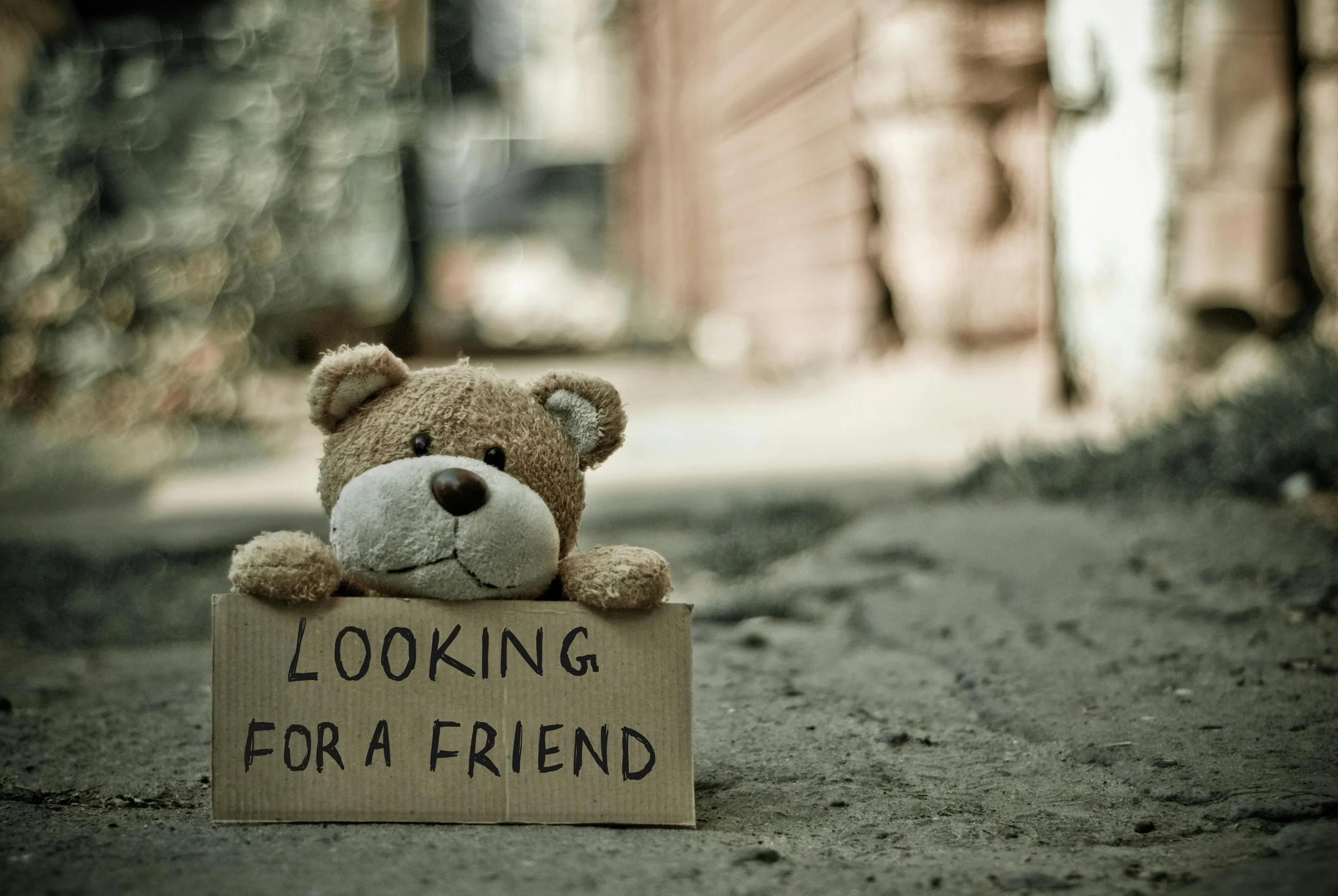The material on the Site is provided for educational purposes only, and is not to be used for medical advice, diagnosis, or treatment. Use of the Site is subject to our Terms.

Fear, Labels, and Listening: What We Lose When Fear Leads the Conversation
In moments of national tension, fear often drives us further into our labels and away from each other. I recently tried to have an honest conversation about these divisions with one of my closest friends, only to feel his guardedness—and my own struggle to connect—get in the way. What I’ve been noticing, both personally and in my work with clients, is how fear of being misunderstood, losing identity, or facing the unknown makes real dialogue nearly impossible. If we can first acknowledge that fear, and understand our own values, we can begin to listen to each other with more compassion.

The Fallout We Don’t Talk About: When Friendships Go Silent After Conflict
Friendship endings rarely come with warning labels. Sometimes they don’t even come with words. One day you’re sharing laughs and inside jokes, and the next… there’s silence. No blow-up. No dramatic goodbye. Just unanswered texts and a slow fade that feels like an open wound you can’t close.
This kind of loss doesn’t get the recognition it deserves, yet it lingers in our bodies and minds. We replay conversations, wonder what went wrong, and struggle with the haunting uncertainty of Did I matter? Did it mean as much to them as it did to me?
The truth is, friendship silence is its own kind of grief, a confusing, ambiguous loss that has no ritual, no script, and no roadmap. And while we don’t talk about it enough, family systems theory gives us language for the ache and even some tools for healing.

When You Leave… and No One Follows: The Quiet Pain of One-Sided Relationships After a Transition
Feeling erased after leaving a job or community? Learn how ambiguous grief, imposter syndrome, and systems thinking can help you understand and heal.

Trust: Understanding the Nuances in Relationships
Trust isn’t just about the big betrayals—it’s also about the small moments of reliability, support, and emotional safety. You might trust your partner to be faithful, but do you trust them to parent without micromanaging? To handle responsibilities without reminders? To listen without judgment? True trust means feeling safe to be yourself, flaws and all. If you’ve ever filtered your words to avoid criticism or hesitated to share your feelings out of fear of being dismissed, you’ve experienced the nuances of trust. Let’s dive into what trust really means in all areas of life.


How To Set Goals That Matter
As we step into 2025, many of us are setting new goals and resolutions. Did you know that only 9% of people successfully keep their New Year's resolutions? It’s easy to get caught up in setting big, ambitious goals, but these often lead to disappointment when we can’t keep up with them. Studies show that smaller, actionable goals are far more effective.
By taking a systemic approach to goal-setting, understanding relational needs, and enlisting the help of an accountability partner, you can set and achieve goals that truly make a difference. Remember to break your goals into manageable tasks, celebrate successes, and practice gratitude along the way. Setting goals that matter is about finding the balance between ambition and practicality. Together, we can turn those goals into reality.


Navigating Change: Acknowledging Grief in Life Transitions
Grief isn’t limited to the loss of loved ones—it often accompanies major life transitions like job loss, career changes, retirement, divorce, moving, or breakups. These shifts can trigger ambiguous grief and leave individuals struggling with loss of identity. This blog offers empathetic insight into the emotional impact of these transitions, along with practical strategies—such as journaling, mindfulness, social support, and professional help. Readers are encouraged to explore tools like the Mental Physical to regain clarity and embrace new beginnings with grace.

Pushing Ourselves to Engage: Connection in an Isolation World
As work-from-home becomes a permanent part of our lives, it’s important to recognize the need for intentional social connection. While remote work offers flexibility and convenience, it also encourages isolation if we’re not careful. This blog explores the mental health benefits of socializing, the value of engaging with people outside of our close circles, and practical tips for maintaining connection without losing the benefits of remote work. By pushing against the pandemic-induced isolation mindset, we can find balance and thrive in this new era.

Work-Life Balance for Couples: Navigating Love and the Daily Grind
Discover how couples can maintain a healthy work-life balance in today’s fast-paced world. This blog offers practical tips on respecting each other's time, making necessary sacrifices, and prioritizing your relationship amidst job market challenges. Learn why nurturing your partnership is key to long-term happiness, while careers may change over time. Ideal for couples navigating the demands of work and love.
Search for a subject or select from the category list to the right.

